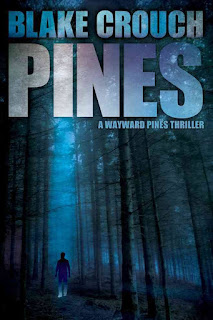There have been a lot of crappy things about 2020.
I know what you're thinking: Thanks, Captain Obvious.
But, in this crappiest of crap years, I am warmed by one thing: a new favorite book by my favorite author that was better than I could have ever imagined.
This is my favorite book of Jess Walter's and my favorite book of this year. It's not just because it's set in the town in which I live, but that helps. Now, my drives to work take longer because I have to stop at all the sites in the book along the way.
That, for example, is the old Carnegie Library at the west end of downtown Spokane. It's not a library anymore, but it was in 1909 when this book was set. One of the characters, a lost teenager named Rye, finds solace here and access to worlds he'd otherwise never know.
The Cold Millions, like Jess's other books, is rich with character and writing and place. Spokane is a major character here, but not the city like we know it now. At this time in history, Spokane was buzzing. It was doubling in size every five years, criss-crossed by railroad tracks that carried people from all over the country. It was a town filled with laborers and performers, the rich and the poor. It was a postcard from this time in history (which Jess found at one of my favorite local shops) that inspired him to capture what life must have been like in our city back then.
Gig and Rye are brothers looking for work wherever they can find it. Living on a sleeping porch in Spokane's Little Italy, they find themselves swept up in the union movement of the day. It leads to conflict and imprisonment and the harsh reality that feels just as present today: the world is controlled by the rich and powerful living on a hill, not by the cold millions doing the real work in the valleys below.
It's a story about the west, inequity, free speech, women's rights... so much of it rings true today. Jess could never have known when he started this book how relevant it would be at this moment, but when I drive down Stevens Street every day on my way home, I can almost feel the energy of the country's first free speech demonstrations which happened on those very corners. In as many ways as Spokane is different now, so many of the themes are the same.
That has a Christine Blasey Ford ring, doesn't it? Some things never change.
There are real Spokanites in this book. There are fictional characters, too. There are real places and real events and even my favorite old west town of Taft, Montana, once dubbed the Wickedest City in America. There is strength and power and despair and love and just perfection. There is ache and memory; the entire epilogue, I felt like someone was squeezing my chest. When I closed the book, I burst into tears.
There are lines in this book that stopped me cold. "Spokane gave me the morbs," says one man who is called to the Lilac City to do a rich man's dirty work. There are gems like this buried through out, dropped like gold coins by one of the greatest American writers who happens to be a guy that lives not far from where I'm writing this.
The best books make us change the way we see the world. This one changed the way I see the city in which I live.
I can't imagine a more perfect book. It almost redeems 2020. Almost.








































